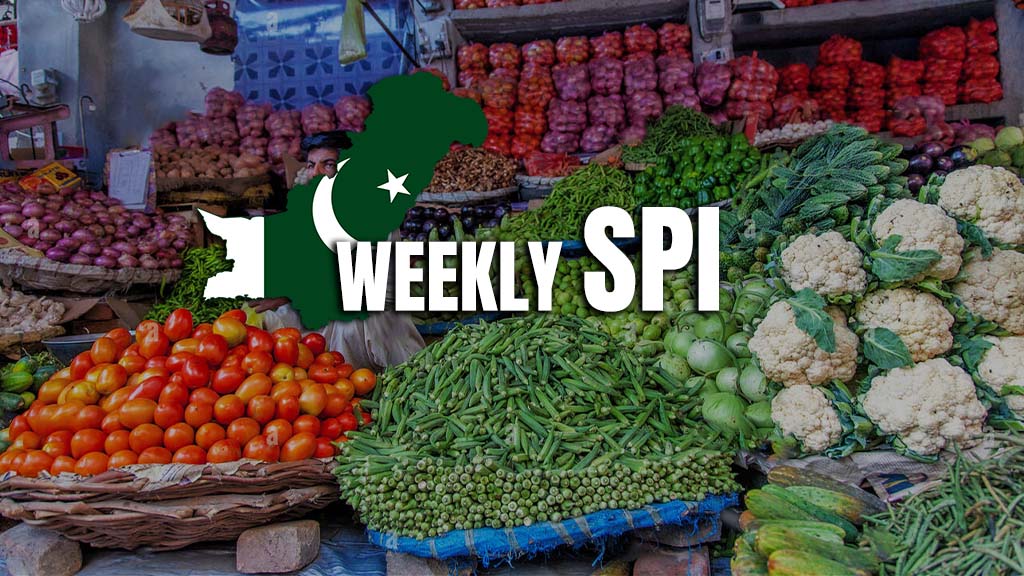- Web
- Feb 05, 2026
Tomato, egg prices push weekly inflation higher
-

- Web Desk
- Nov 16, 2024

ISLAMABAD: Pakistan’s weekly inflation, also known as short-term inflation, eased to 4.16 per cent year-on-year (YoY) marking lowest annual increase since October 2018.
On a week-over-week (WoW) basis, the Sensitive Price Indicator (SPI) saw a 0.55 per cent rise as of November 14, as per the Pakistan Bureau of Statistics (PBS).
The PBS tracks inflation through the SPI to keep an eye on the price changes of essential goods more frequently, giving a clear picture of price trends in the country.
This index covers 51 basic items from 50 markets across 17 cities. Over the past week, prices for nearly half of these items, around 24, went up, while prices for six items dropped, and 21 stayed the same.
Among the biggest weekly price hikes were tomatoes (up 16.86 per cent), eggs (5.01 per cent), garlic (4.30 per cent), LPG (4.10 per cent), and firewood (2.07 per cent).
On the other hand, some items saw a drop in prices, such as pulse gram (down 2.51 per cent), pulse mash (0.87 per cent), bananas (0.18 per cent), chicken (0.07 per cent), and wheat flour (0.01 per cent).
| Item | Price increase | Item | Price decrease |
| Tomatoes | 16.86% | Pulse Gram | -2.51% |
| Eggs | 5.01% | Pulse Mash | -0.87% |
| Garlic | 4.30% | Bananas | -0.18% |
| LPG | 4.10% | Chicken | -0.07% |
| Firewood | 2.07% | Wheat Flour | -0.01% |
When looking at income groups, the SPI increase affected everyone, with weekly rises between 0.44 per cent and 0.83 per cent. The lowest income group experienced the largest increase at 0.83 per cent, while the highest income group saw a smaller rise of 0.44 per cent.
On an annual basis, there were significant price hikes for items like pulse gram (up 74.53 per cent), pulse moong (38.88 per cent), powdered milk (25.74 per cent), beef (23.02 per cent), and onions (22.78 per cent).
On the flip side, items like wheat flour (down 34.98 per cent), chilli powder (20.00 per cent), diesel (13.92 per cent), petrol (11.64 per cent) and tea (11.22 per cent) saw notable decreases.
Across different income brackets, the SPI increased for all groups over the year, ranging between 2.33 per cent and 4.75 per cent. The lowest income group saw a 2.33 per cent rise, while the highest income group experienced a 4.75 per cent increase.
Read next: Pakistan’s large-scale manufacturing shrinks 1.92 per cent




